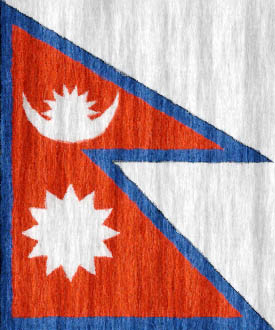Uttam Sanjel, founder of Samata School, stands before the morning assembly. Samata means “equal for all”. Today he wants to talk about a story from one of his students, whose mother celebrated the birth of a son over a daughter.
“After five girls, my mom finally had a boy. She named him ‘Holy life water’. But our life has become more difficult. Why is it happening? It’s all because of lack of education. You have to tell your family and neighbours that sons and daughters are equal.”
They then sing a song called, “Mother is Great, Love Her, Respect Her”, and class begins.
In Nepal, government-run schools are criticised for providing inadequate education - yet private schools are very expensive, making them out of reach for the poor.
“Private education is definitely costly and government-run schools are terrible. In between this, there is big vacuum which gets bigger every day,” says Sanjel.
A private school in Nepal can cost more than $15 a month, but Sanjel’s Samata Schools are just $1 per month. You could call it an alternative private school for the poor.
Anita Shrestha lives in a tiny room with her two daughters and husband. “My parents told me, ‘girls don’t need to study. They are born to take care of the house.’ So they sent my brothers to school - but not me.”
But Anita wanted her own daughters to get an education, so when she heard about the private school that cost just a dollar, she sent them both there.
“In other private schools they charge up to $30 a month. In Samata schools it’s one dollar. Sometimes, if I can’t pay they don’t charge me at all. I feel like that school is for the poor people like us.”
Her eldest daughter Karuna is now in grade 10 and loves to read. “Usually I can’t afford to buy books so I borrow them from my friends. I want to be a well-read person. I want to become a doctor.”
When Sanjel first came up with the idea of his bamboo $1 school, he too had no money and was an unemployed actor who dreamed of becoming a Bollywood star.
“I didn’t have money to buy buildings. I really wanted to show people my idea. Everybody has bamboo at home, so I started collecting bamboo. Now we have constructed the schools with the material that has become its trademark - and call them ‘Bamboo Schools.’”
Sanjel has built similar schools in 19 districts throughout the country, with more than 30,000 children studying in them. The $1 fee from the pupils covers just 10% of his costs; he has to do fundraising for the rest.
“We get donations from around Nepal, as well as from other places. But, even then, sometimes it is hard to pay the teachers’ salaries. My own home is in the bank as a deposit. The world is full of kind-hearted people and many of them have come personally to give me donations.”
Last year, all his students across the country passed the school-leaving exam with an average mark of 80.- Worldcrunch/PortalKBR

